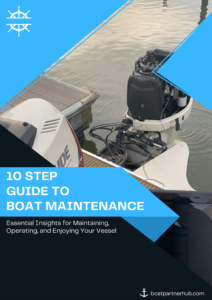Blog
Tips On How To Diagnosing Common Outboard Motor Problems

Smooth Sailing Ahead: Diagnosing and Resolving Common Outboard Motor Problems
Outboard motors are a vital component of boats, providing reliable power for propulsion and maneuvering on the water. Like any mechanical system, outboard motors can encounter issues from time to time, affecting their performance and reliability. Diagnosing common outboard motor problems is essential for boaters to understand and address minor issues before they escalate into more significant complications. In this article, we will explore some of the most frequent outboard motor problems, their symptoms, and possible solutions to keep your boat’s engine running smoothly.
1. Difficulty Starting the Engine
One of the most common outboard motor problems is difficulty starting the engine. If you experience this issue, it may be due to various reasons:
- Solution: Check the fuel supply to ensure the tank has sufficient fuel and that the fuel line is not clogged. Inspect the spark plugs for fouling or damage and replace them if necessary. Additionally, examine the battery for adequate charge and connections.
2. Rough Idle or Stalling
If your outboard motor idles roughly or stalls unexpectedly, several factors could be contributing to the problem:
- Solution: Inspect and clean the carburetor to remove any debris or deposits that may be affecting the fuel-air mixture. Check the fuel filter and replace it if clogged. Ensure the spark plugs are in good condition and properly gapped.
3. Loss of Power
A sudden loss of power or a decrease in engine performance can be frustrating for boaters. Several issues could be causing this problem:
- Solution: Check the fuel and oil mixture ratio to ensure it’s correct for your outboard motor’s specifications. Inspect the propeller for damage or debris that may be affecting its efficiency. Verify that the spark plugs, fuel filter, and air filter are clean and functioning correctly.
4. Overheating
Outboard motors can overheat, especially in hot weather or when running at high speeds for extended periods. Overheating can lead to serious engine damage if not addressed promptly:
- Solution: Check the water pump impeller for signs of wear or damage, as a faulty water pump can cause overheating. Ensure the cooling system is free from debris or blockages. Also, verify that the thermostat is functioning correctly.
5. Excessive Smoke
Unusual smoke emissions from the outboard motor’s exhaust can indicate underlying issues:
- Solution: Blue smoke often indicates oil leakage into the combustion chamber, while black smoke suggests a rich fuel mixture. Inspect the oil levels and the oil injection system (if equipped) for leaks. Adjust the carburetor to achieve the correct fuel-air mixture.
6. Electrical Problems
Outboard motors rely on electrical components for ignition and various functions. Electrical issues can lead to starting problems and engine malfunctions:
- Solution: Inspect and clean the electrical connections. Check the battery and charging system for proper function. If there are any damaged wires or electrical components, replace them as needed.
7. Excessive Vibration or Noise
Unusual vibrations or noises from the outboard motor can indicate mechanical issues that require attention:
- Solution: Inspect the propeller for damage, balance, or bent blades. Check the engine mounting and tighten any loose bolts. If the vibration persists, have a professional mechanic inspect the motor for potential internal issues.
Conclusion
Diagnosing common outboard motor problems is a crucial skill for boat owners to ensure the engine’s reliable performance and longevity. Regular maintenance and periodic checks can help prevent many issues, and addressing minor problems promptly can prevent them from escalating into more significant and costly complications. If you encounter outboard motor problems beyond your expertise, don’t hesitate to consult a qualified marine mechanic for a thorough inspection and professional repairs. By taking care of your outboard motor and addressing issues proactively, you can enjoy smooth and trouble-free boating experiences on the water.
FAQs
- Can I troubleshoot outboard motor problems on my own? Some minor issues can be diagnosed and addressed by boat owners with basic mechanical knowledge. However, complex problems may require professional expertise.
- What should I do if my outboard motor shows signs of overheating? If your outboard motor is overheating, immediately shut it down to prevent engine damage. Allow it to cool down before investigating the cause or seeking professional help.
- Can bad fuel quality affect outboard motor performance? Yes, bad fuel quality, such as stale or contaminated fuel, can adversely affect the outboard motor’s performance and cause starting and running issues.
- How often should I perform maintenance on my outboard motor? Regular maintenance, including oil changes, spark plug replacements, and inspection of fuel and cooling systems, should be performed according to the manufacturer’s recommended schedule.
- Should I use aftermarket parts for outboard motor repairs? While aftermarket parts may be more affordable, using genuine manufacturer-recommended parts ensures optimal performance and reliability for your outboard motor.


